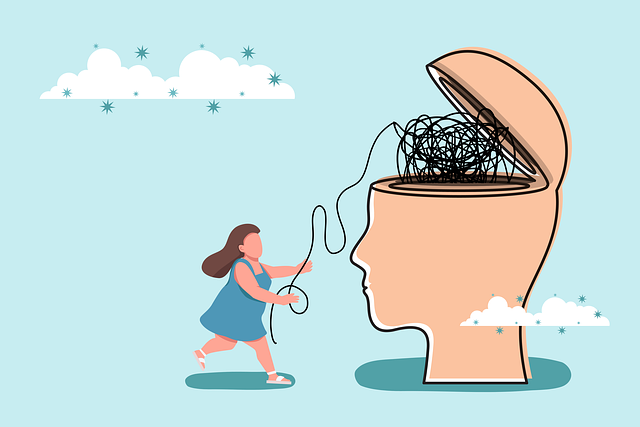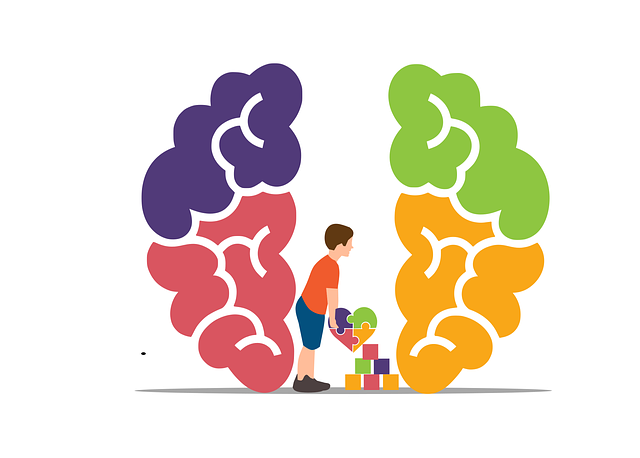Cultural competency in healthcare, as demonstrated by Lafayette German Speaking Therapy, is vital for providing inclusive care in diverse communities like Lafayette. By understanding and respecting different cultures, languages, and traditions (e.g., German-speaking residents), healthcare providers improve communication, build trust, and enhance health outcomes. Their unique training method combines self-care, workshops, social skills training, storytelling, and podcast series to equip practitioners with cultural awareness, bias recognition, and tailored communication skills. This holistic approach bridges cultural gaps, improves patient experiences, and promotes the mental well-being of both providers and patients, as evidenced by their continuous improvement through data-driven evaluation and Community Outreach Program.
Healthcare provider cultural competency training is essential in today’s diverse healthcare landscape. This article explores the significance of cultural competence, focusing on the unique approach of Lafayette German Speaking Therapy. We delve into key components of effective programs, emphasizing the importance of understanding cultural nuances and providing inclusive care. Learn how organizations like Lafayette German Speaking Therapy are revolutionizing healthcare through culturally competent practices, ensuring better patient outcomes and improved community engagement.
- Understanding Cultural Competency in Healthcare: Why It Matters
- The Lafayette German Speaking Therapy Approach to Training
- Key Components of Effective Cultural Competency Programs
- Measuring Success and Continuous Improvement in Cultural Competence
Understanding Cultural Competency in Healthcare: Why It Matters

Cultural competency in healthcare is a vital aspect that goes beyond treating symptoms; it’s about understanding and respecting diverse cultures, traditions, and beliefs. In today’s diverse society, healthcare providers interact with patients from various ethnic backgrounds, including those who may speak languages like German, as seen in Lafayette communities. This cultural diversity presents both opportunities and challenges. By embracing cultural competency, healthcare professionals can create a more inclusive environment, ensuring every patient receives personalized care that considers their unique cultural context.
It matters because it improves communication, enhances trust between patients and providers, and promotes better health outcomes. For instance, a German-speaking therapist in Lafayette can offer specialized therapy services tailored to the needs of German-speaking individuals seeking mental wellness support. This level of understanding enables therapists to incorporate relevant cultural references and practices into their guidance, making exercises like journaling and self-awareness activities more effective for anxiety relief. Such personalized care can significantly impact patients’ willingness to engage in therapy and their overall mental wellness journey.
The Lafayette German Speaking Therapy Approach to Training

The Lafayette German Speaking Therapy Approach to training offers a unique and immersive method for enhancing cultural competency among healthcare providers. This innovative program recognizes the significant impact that language and cultural background can have on patient care, especially within a diverse community. By incorporating elements of self-care routine development for better mental health, the approach encourages practitioners to cultivate their own emotional well-being while effectively treating clients from various ethnic backgrounds.
Through interactive workshops and engaging social skills training sessions, Lafayette German Speaking Therapy equips professionals with the tools needed to navigate cultural nuances. This holistic training goes beyond traditional educational methods by incorporating practical exercises and real-life scenarios that reflect the complexities of cross-cultural interactions. Additionally, the program leverages the power of storytelling and mental wellness podcast series production to foster a deeper understanding of diverse perspectives, ultimately enriching the patient experience.
Key Components of Effective Cultural Competency Programs

Effective cultural competency programs in healthcare settings are multifaceted and dynamic, aiming to bridge cultural gaps and improve patient outcomes. At Lafayette German Speaking Therapy, we recognize that understanding diverse cultural contexts is essential for delivering personalized care. Key components of such programs include comprehensive training on cultural awareness, bias recognition, and communication skills tailored to specific communities. These initiatives foster an environment where healthcare providers learn to navigate complex cultural dynamics, ensuring every patient receives respectful and competent care.
Integrating burnout prevention strategies for healthcare providers into these programs is vital. By promoting mental wellness through the Mental Wellness Podcast Series Production, empathy-building strategies become more accessible. This holistic approach not only enhances cultural competency but also supports provider resilience, allowing them to better connect with patients from various cultural backgrounds while maintaining their own mental health.
Measuring Success and Continuous Improvement in Cultural Competence

Measuring success and driving continuous improvement in cultural competence is an ongoing process that requires rigorous evaluation and feedback mechanisms. At Lafayette German Speaking Therapy, we understand that assessing cultural competency goes beyond mere knowledge; it involves gauging the impact of our practices on patient outcomes and community engagement. This involves collecting diverse perspectives through surveys, focus groups, and one-on-one interviews with patients, families, and staff from various cultural backgrounds.
By integrating these insights into our Mental Health Policy Analysis and Advocacy efforts, we can identify gaps in care and adapt our Crisis Intervention Guidance accordingly. Furthermore, successful implementation of a Community Outreach Program can serve as a benchmark for evaluating our progress in fostering an inclusive environment that respects and values diverse cultures. This data-driven approach ensures that our training remains dynamic, relevant, and responsive to the evolving needs of our community.
Cultural competency training, as demonstrated by the innovative Lafayette German Speaking Therapy approach, is a game-changer in healthcare. By equipping providers with the skills to navigate diverse cultural landscapes, we enhance patient care and foster inclusive environments. Effective programs, centered around key components like intercultural communication, awareness of unconscious biases, and community engagement, lead to improved health outcomes and stronger relationships between healthcare professionals and patients from various backgrounds. Continuous improvement, measured through feedback and outcome assessments, ensures these training initiatives remain relevant and impactful in a constantly evolving world.














